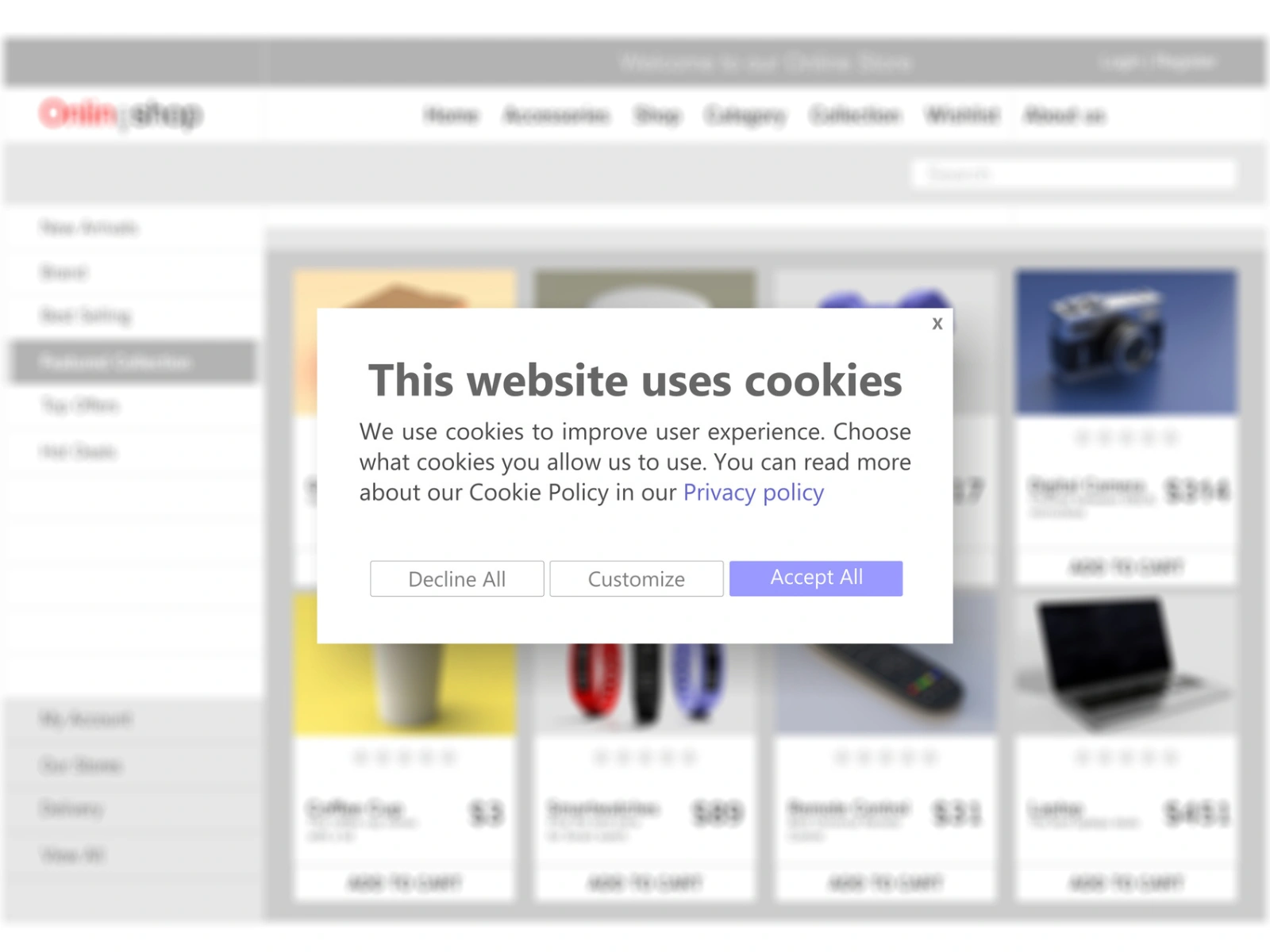Why Cookie Consent Plugins Are Essential


In a digital ecosystem where consumer privacy is paramount, the landscape of consent and data privacy regulations is ever-evolving. As of 2024, we’re witnessing a significant shift towards enhanced data protection with legislation like the California Privacy Rights Act (CPRA) in the US and the anticipated ePrivacy Regulation (ePR) in the EU, which are setting new precedents for consent management .
The Imperative of Cookie Consent Plugins
The need for cookie consent plugins stems from regulations such as the General Data Protection Regulation (GDPR) and the CPRA, which mandate informed, specific, and voluntary consent from users before any data collection can occur. In an international context, websites with diverse traffic must comply with varying laws, including those not explicitly requiring cookie banners, such as the CCPA, but nonetheless recognizing the importance of respecting user privacy.
Data Collection Approaches: Opt-In vs. Opt-Out
Data collection can be broadly categorized into two approaches: opt-in and opt-out. The opt-in approach, prevalent in the EU, requires active consent from users before deploying non-essential cookies. Conversely, the opt-out model, which is often seen in the US, assumes consent but must provide users with the option to refuse.
Limitations on marketing strategies due to these approaches include:
- Opt-in: May reduce the volume of data collected, impacting analytics and personalization efforts.
- Opt-out: Risks user trust if perceived as less transparent, potentially leading to brand reputation issues.
UX Best Practices for Cookie Consent Plugins
As regulations tighten, a shift towards first-party data strategies is crucial, relying on data directly obtained from customers with clear consent, enhancing trust and data quality.
From a user experience (UX) perspective, consent plugins should be:
- Clear and Informative: Offer concise information about the types of cookies used and their purposes.
- Unobtrusive yet Noticeable: Ensure visibility without significantly disrupting the user journey.
- Easy to Use: Enable users to grant or withdraw consent with minimal effort.
- Consistent with Branding: Reflect the website’s design language to maintain trust and recognition.
- Accessible: Comply with accessibility standards to cater to all users.
Top 5 Cookie Consent Plugins for WordPress Websites
Considering functionality, compliance, and user experience, the top cookie consent plugins for WordPress sites in 2024 are:
- CookieYes
- Complianz
- Cookie Notice for GDPR & CCPA
- WP AutoTerms
- Borlabs Cookie
Each plugin has its strengths and is tailored to different types of users, from those who prioritize ease of use and cost (like Cookie Notice for GDPR & CCPA) to those who need a comprehensive solution with robust legal compliance features (such as Complianz). When choosing a cookie consent plugin, it’s important to weigh these pros and cons against the specific needs and resources of your website.
CookieYes
Pros:
- Intuitive user interface, making it simple for website owners to set up and customize.
- Wide range of compliance features that cater to regulations like GDPR and CCPA.
- Automatic cookie scanning to keep cookie declarations up to date.
Cons:
- The free version has limitations on customization options.
- Some advanced features are only available in the paid version, which may not be ideal for small businesses.
Complianz
Pros:
- Comprehensive legal support with built-in legal texts and a privacy statement generator.
- Geo-targeting of consent modal based on user location.
- Integration with major plugins and services for streamlined operations.
Cons:
- The variety of options can be overwhelming for beginners.
- The most robust compliance features require a premium subscription.
Cookie Notice for GDPR & CCPA
Pros:
- User-friendly setup with minimal configuration required for basic use.
- Offers a flexible consent mechanism for GDPR and CCPA with opt-in and opt-out features.
- Free to use, which is great for small websites and startups.
Cons:
- Lacks the depth of legal compliance features found in more sophisticated plugins.
- May require additional customization for complex websites.
WP AutoTerms
Pros:
- Not only manages cookies but also helps in creating terms and conditions and privacy policies.
- Easy to integrate with existing WordPress themes and plugins.
- Offers compliance kits for specific laws and regulations.
Cons:
- Core features are free, but some crucial compliance features may require a paid license.
- The setup might be a bit complex for users unfamiliar with legal terminology.
Borlabs Cookie
Pros:
- Offers a cookie consent management system with a focus on design customization.
- Allows categorization of cookies and scripts for granular user control.
- Supports multi-language websites, making it ideal for international audiences.
Cons:
- Premium plugin, so there is an upfront cost which may not suit all budgets.
- May require a bit of a learning curve to fully utilize all its features.
Summary
In conclusion, the adoption of cookie consent plugins is not merely a legal compliance measure but a step towards fostering a respectful relationship with users. As we move forward, the interplay between privacy, user experience, and marketing efficiency will shape the digital landscape. It’s vital for organizations to stay informed and adaptable to maintain compliance and uphold user trust in this dynamic environment.
Related resources

Thanks! You’ll hear back within 48 business hours
In the meantime, why not check out our latest case study?

Whether you need help with a project, want to learn more about us, or just want to say hi, you’ve come to the right place.






